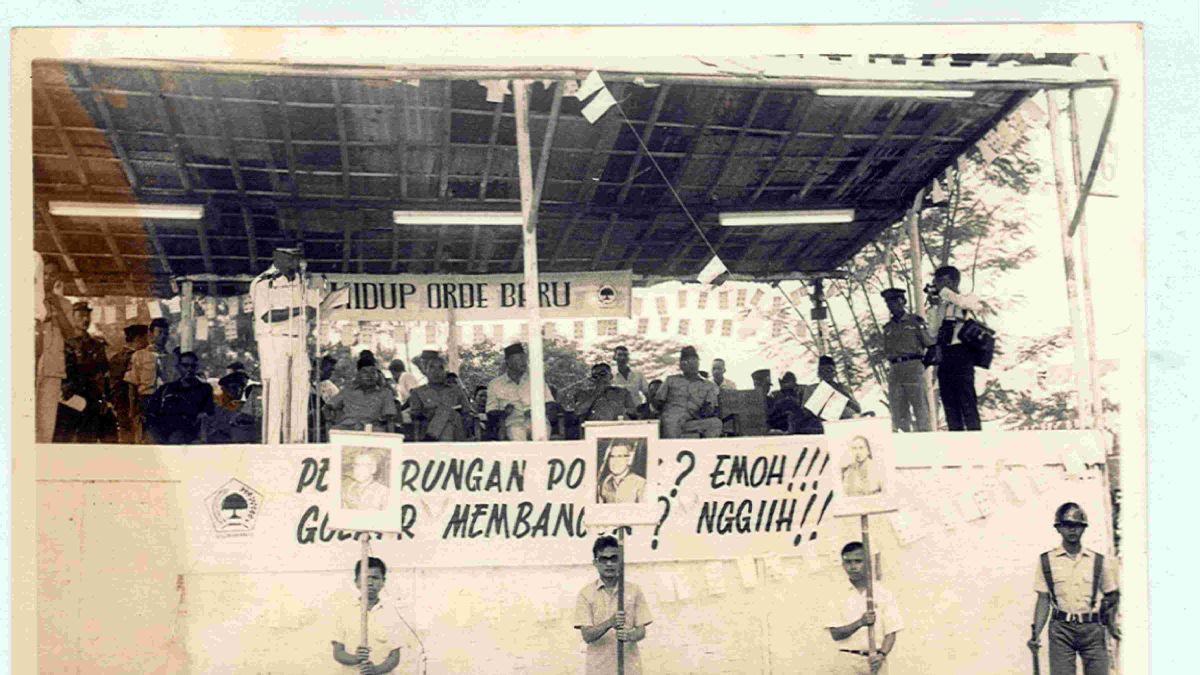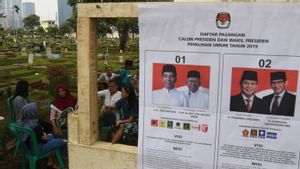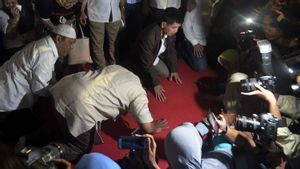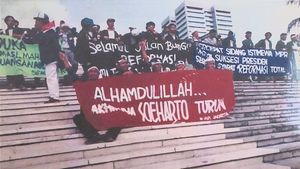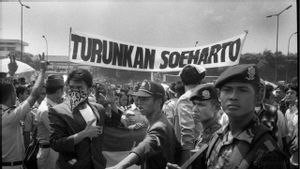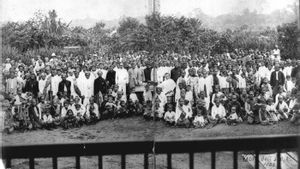JAKARTA For 16 years, elections were not known in Indonesia. Since it was first held in 1955, the new election appeared again in 1971 or during the New Order under the leadership of President Suharto.
Starting from the Presidential Decree issued by President Soekarno on July 5, 1959, which automatically dissolved the results of the first election in 1955. Since then Soekarno has run the government in a guided democracy way. MPs are elected according to the will of the President.
This condition makes Indonesia's political situation unstable. The struggle for power between parties who want to approach Soekarno is inevitable. The peak of this political instability was the 1965 incident, which dragged the Indonesian Communist Party (PKI). Both elements are indeed competing tightly in efforts to stick to Soekarno.
Soekarno was then dismissed from the position of President in 1966, and named Suharto as a new leader. Starting from the Presidential Officer in 1967, Suharto was officially mandated as President in 1968.
It is not easy to hold elections after a long absence. The preparations made are very complex, starting to prepare laws and regulations, drafting committees, and population censuses. This census is intended to re-register citizens who are entitled to participate in the election.
Based on MPRS Decree No. XLII of 1968, the holding of the General Election was finally set for July 3, 1971. The second election in Indonesia was supposed to be held on July 5, 1968, but it was postponed on the grounds that the political situation at that time was in crisis. At that time, many officials and politicians who triumphed in the Soekarno era were arrested, on charges of being involved in the 1965 incident.
The Election Law was also generated, namely Law No. 15 of 1969 concerning Elections for Members of the People's Consultative Body/Representation and Law No. 16 of 1969 concerning the Composition and Position of the MPR, DPR, and DPRD.
In the Election Law, there are points of consensus, which essentially the election results must take sides and win the New Order. A traumatic experience during the Old Order era became the background for the inclusion of consensus in the Election Law at that time.
After the rules were set, it was the turn of the census. The last Indonesian population census was held in 1961, before it was carried out again in 1970. From the results of the Population Census as well as the registration of election participants, it is known that the total population of Indonesia is 114,972,428. Of these, 50.23 percent are entitled to participate in the General Election, or the equivalent of 57,750,615 people.
In addition, political parties participating in the election were also re-selected. Parties involved in the 1965 incident were prohibited from participating and disbanding. Finally, there were nine political parties participating in the 1971 elections, namely: Nahdlatul Ulama (NU), the Indonesian Muslim Party (Parmusi), the Indonesian National Party (PNI), the Indonesian Islamic Sarekat Party (PSII), the Indonesian Christian Party (Parkindo), the Catholic Party, the Tarbiyah Islamiyah Association (Perti), the Many People's Consultative Party (Murba), and the Indonesian Independence Supporting Association Party (IPKI).
The 1971 Election participants are still added to the Working Group (Golkar), which positions itself as a political party. In Kompas' report on February 25, 1968, Golkar, which is not a political party, was involved in the DPR-GR. The organization formed by Soekarno and the Army, is actively cleaning up the DPR from elements of the anti-Pancasila group.
The first election for the New Order was finally held simultaneously on July 3, 1971. The implementation system has not changed from the 1955 elections, namely voters coming to polling stations, getting ballots, voting on political parties in ballots, and inserting ballots into ballot boxes.
Golkar won absolutely in the 1971 elections, with a vote of 34,348,673 or 62.80 percent. Golkar's absolute victory as a new comeback made him fully control the parliament.
According to the professor of political science from Ohio State University, United States who has always observed Indonesian politics, R. William Liddle, Golkar's victory was caused by several factors.
In addition to economic factors and past trauma, fear and compliance with the authorities are the most important elements in Golkar's victory. Indirectly, the influence comes through village leaders and absorbs among ordinary villagers, "said Liddle's analysis as quoted by Kompas.
The 1971 elections became the beginning of Golkar's dominance during the New Order. The dominance continued until the 1977 General Election, before the New Order finally fell in 1998.
In every election implementation, there is always a ghost of a screening called 'curror'. This fraud is said to have emerged since Indonesia got to know the election in 1955.
In the 1950s, when Indonesia's political climate was unstable, many security disturbances occurred everywhere. This security disturbance made the voter registration process stagnate, as well as interference with the distribution of election equipment.
Only in relatively safe areas, especially in Java, elections can be held smoothly. However, outside Java, where there are still many rebellions such as Aceh, North Sumatra, and South Sulawesi, conditions are not easy.
Not to mention the question of the level of illiteracy which is still very high, making administrative affairs difficult. Transportation constraints also have a role in cheating the 1955 General Election. The holding of the 1955 General Election is likened to a 'betting between life and death'.
Not a few officers organizing the 1955 Election died as a result of being killed by those who intended to disrupt the national celebration. The 1955 election was finally held on September 29, although it was not held simultaneously because of these various obstacles.
Speaking of election fraud, there was one statement from Mahfud MD when he was still serving as Coordinating Minister for Political, Legal and Security Affairs.
"In the New Order era, there was no Constitutional Court. If it is cheating, it must be accepted, there is no court," Mahfud said at an event at UGM, Yogyakarta on August 27, 2022.
Mahfud gave an example of fraud committed by the New Order to always win Golkar. The government utilizes the General Election Institute (LPU) under the Ministry of Home Affairs.
SEE ALSO:
"Now it's horizontally cheating, this political party is tricking the political party. So if it used to be cheating from above," Mahfud said again as quoted by Antara.
Even though the election fraud is still there, Mahfud assesses that the democratic system in Indonesia is far more advanced than the New Order era, and before. Is that true?
The English, Chinese, Japanese, Arabic, and French versions are automatically generated by the AI. So there may still be inaccuracies in translating, please always see Indonesian as our main language. (system supported by DigitalSiber.id)
